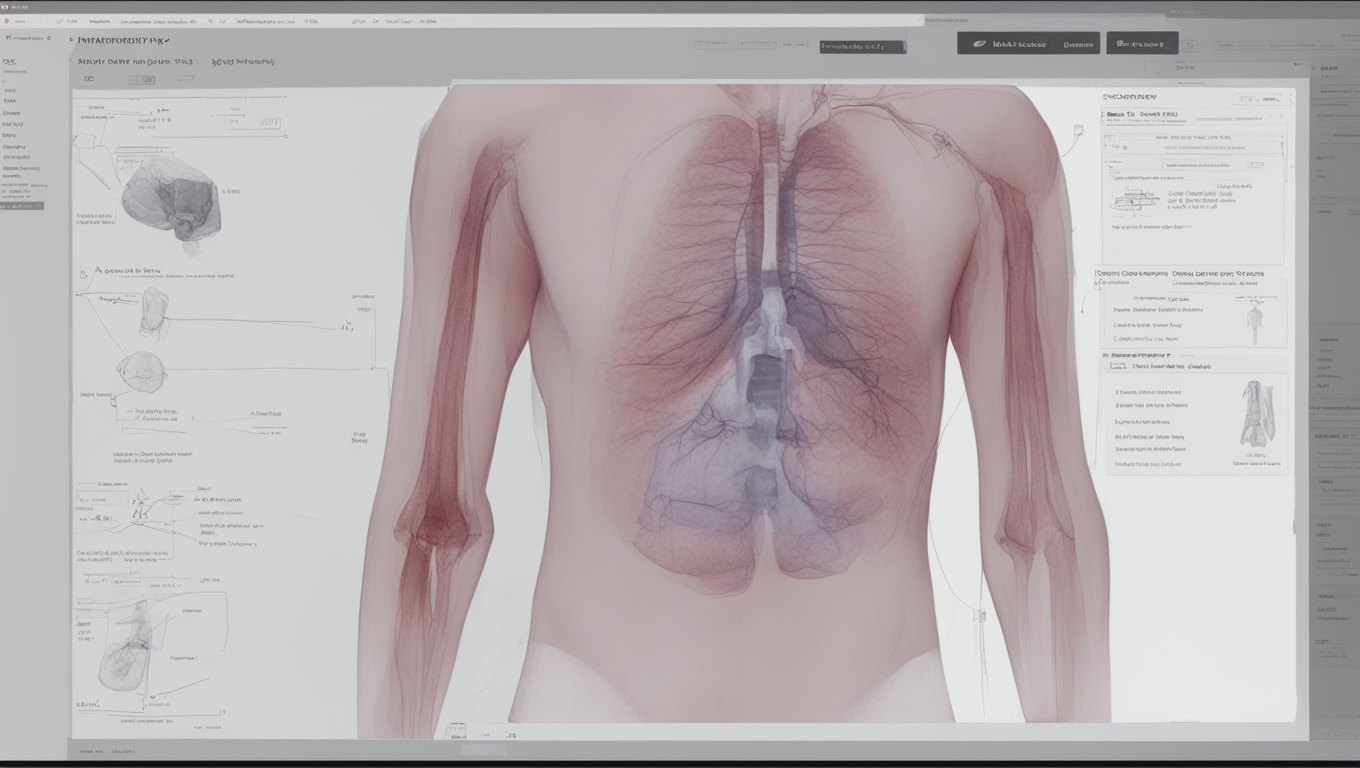In a groundbreaking development, a trial using artificial intelligence (AI) to detect lung cancer through chest X-rays has begun at the Royal Alexandra Hospital in Paisley. This innovative technology is being deployed in an effort to improve the early detection of the disease. Over the course of just three days, nearly 250 patients underwent appointments at three hospitals in NHS Greater Glasgow and Clyde, during which AI was used to analyze their chest X-rays in near real-time.
Lung cancer is the leading cause of death in Scotland, making early detection crucial for improving patient outcomes. By utilizing AI, it is hoped that diagnoses can be expedited, leading to timely treatment plans and potentially saving lives. Professor David Lowe, professor of health innovation at the University of Glasgow and emergency medicine consultant at NHS Greater Glasgow and Clyde, stressed the importance of early detection: “At present, 40 to 50 percent of patients present with advanced or stage 4 cancer, leading to poorer outcomes. If we can spot cancer earlier…we can improve time to further imaging, and subsequent treatment.”
It is estimated that around 5,500 people are diagnosed with lung cancer annually in Scotland, with projections indicating a 29 percent increase in diagnosis rates for women and a 12 percent increase for men by 2027. However, if lung cancer is detected earlier, at stage 2, more than 35 percent of patients can survive for longer than five years. This survival rate rises to over 55 percent if the cancer is diagnosed at stage 1.
The AI technology being tested in this trial, developed by Qure.ai, automatically segregates normal chest X-rays from those with abnormalities, such as masses or lung nodules, allowing doctors to prioritize these cases for further examination and potentially expedited care. The trial, called RADICAL (Radiograph Accelerated Detection and Identification of Cancer of the Lung), is a collaboration between Qure.ai, the West of Scotland Innovation Hub hosted by NHSGGC, the University of Glasgow, and the Scottish Government.
Darren Stephens, senior vice-president and commercial head of UK and Europe at Qure.ai, highlighted the potential impact of AI in healthcare: “Diagnosing cancer and other disease conditions earlier reduces long-term pressure on the health economy and also enhances the length and quality of life for patients.” The deployment of AI technology in the healthcare sector carries great promise, with the potential to revolutionize how diseases are detected and treated.
As AI continues to advance, its integration into medical practices has the potential to transform the landscape of healthcare, enabling earlier diagnoses and more efficient treatment. The combination of technology and medicine holds immense possibilities for improving patient outcomes and saving lives. This trial in Scotland is just one example of how AI is being harnessed to tackle one of the biggest health challenges we face. With further research and development, we may soon see AI becoming an indispensable tool in the fight against cancer and other diseases.





Use the share button below if you liked it.